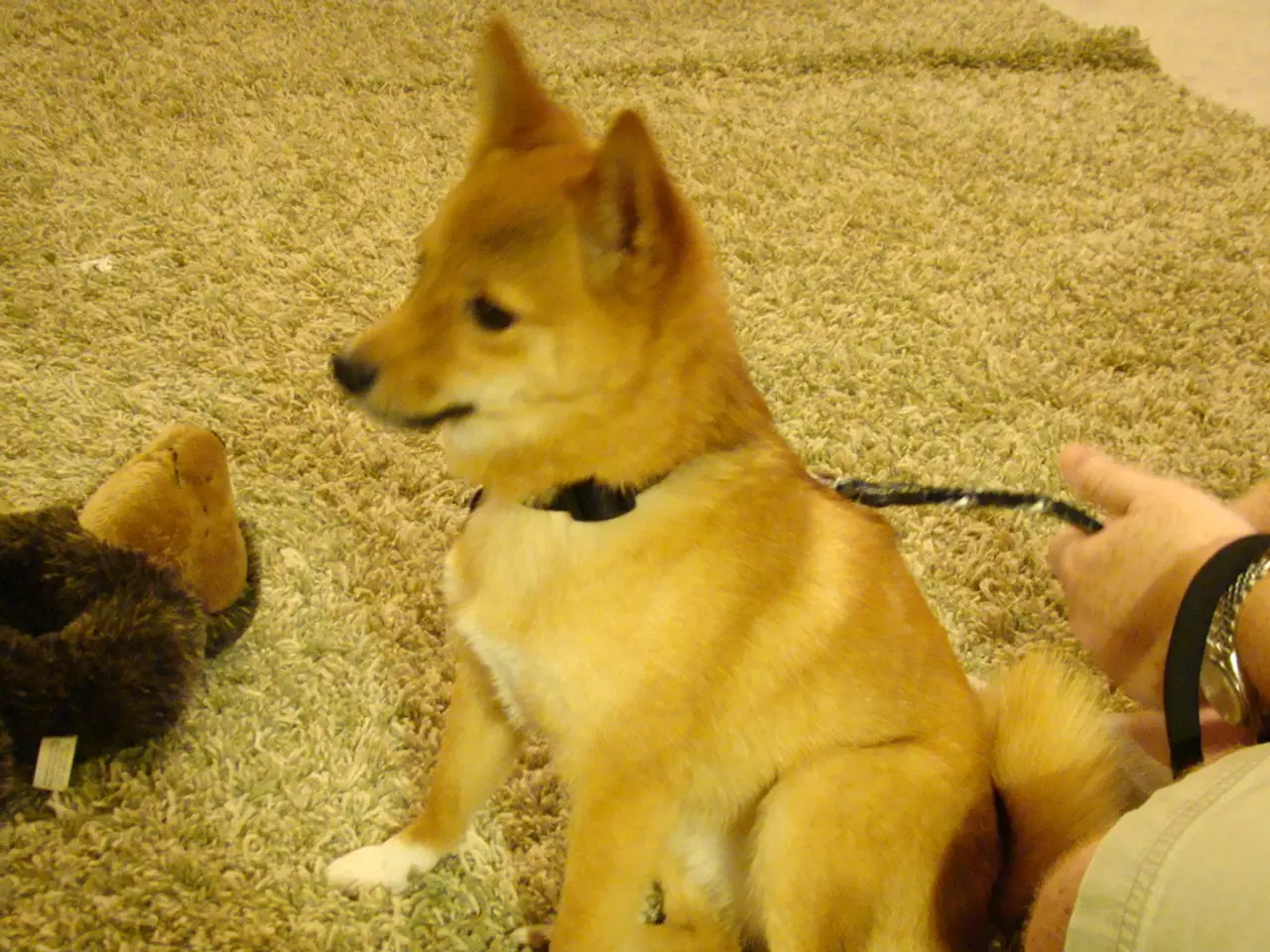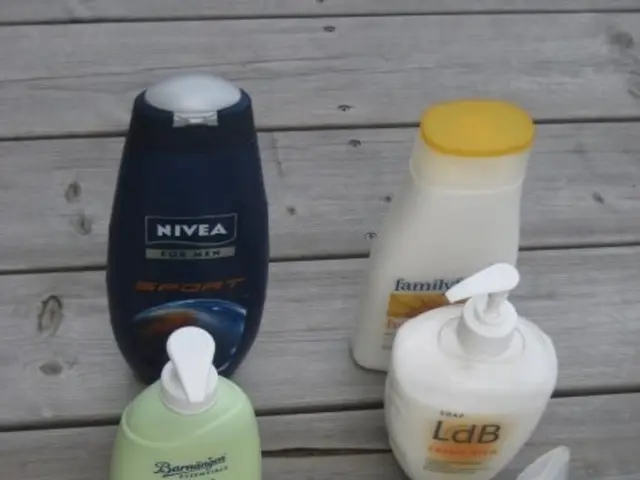Guide on Preventing Puppy Nibbling and Destructive Chewing Habits
Dealing with excessive chewing in dogs, particularly when it's due to separation anxiety, can be a common challenge for pet owners. Here's a guide on how to manage this issue effectively.
Firstly, it's crucial to understand that separation anxiety can cause dogs to chew excessively, especially when alone. Signs of separation anxiety may include restlessness, pacing, urinating on the floor, and other destructive behaviours.
To tackle this issue, the most effective approach combines behaviour modification, environmental enrichment, and sometimes medical support.
Desensitization and counterconditioning involve gradually getting your dog used to being alone. Start by leaving your dog alone for very short periods and slowly increase the duration, rewarding calm behaviour. For example, put on your shoes or grab your coat but stay inside initially to show these actions don’t always mean you’re leaving.
Providing stimulating toys and exercise is another key strategy. Dogs often chew destructively out of boredom. Interactive toys like Kong Wobblers and puzzle games can occupy your dog’s mind. Ensure your dog gets plenty of physical exercise daily, such as walking or playing fetch, to tire them out and reduce anxiety-driven chewing.
Creating a safe space is also important. Design a quiet, comfortable area with your dog’s favourite toys and blankets, where they can feel secure when alone. This den-like environment can help reduce anxiety.
Behavioral training and professional help can also be beneficial. Certified trainers or behaviorists can develop tailored plans using behavioural modification techniques. Mild anxiety may benefit from natural supplements like L-theanine or CBD oil after consulting a vet, while severe cases might require prescription medications under veterinary supervision.
Avoid reinforcing anxiety behaviours by keeping your departures and arrivals low-key to avoid increasing your dog’s stress.
Additional calming methods include massage, physical contact like petting, calming music, or anxiety wraps (Thundershirts).
Early weaning can cause puppies to suckle or chew on fabrics, which may indicate a compulsive behaviour problem. Homemade puppy teething toys can be created from items around the home, such as ice cubes and frozen washcloths. Supervise your puppy when they are chewing to prevent choking hazards.
It's also important to ensure the chews you offer are puppy-safe before handing them out. Look for dog-safe edible and inedible bones at your local pet store. Consider other chews like dog-safe ropes and Kong toys. Offer your puppy bones and dog chew toys in addition to ice and washcloths.
Be aware of the differences between rawhide vs. beefhide chews. Never give animal bones leftover from meals to your puppy as they can pose a danger.
In summary, the key to managing separation anxiety-related chewing lies in combining gradual training to build tolerance to being alone, providing engaging outlets to reduce boredom, ensuring a safe environment, and using veterinary-approved supplements or medications if needed. For severe cases, professional guidance is recommended to prevent harm to your dog and improve their quality of life.
- Understanding that separation anxiety can trigger excessive chewing in pets, particularly dogs, is vital for pet owners.
- To manage this issue effectively, a combination of behavior modification, environmental enrichment, and sometimes medical support is recommended.
- Desensitization and counterconditioning involve training your dog to be comfortable with your departure, starting with very short periods and gradually increasing the duration.
- Providing stimulating toys, exercise, and a safe space are key strategies for dealing with excessive chewing due to boredom or anxiety.
- Behavioral training from certified trainers or behaviorists and the use of natural supplements like L-theanine or CBD oil (after consulting a vet) might be beneficial for managing anxiety.
- For severe cases, prescription medications under veterinary supervision might be necessary, while keeping departures and arrivals low-key can help avoid reinforcing anxiety behaviors.
- In addition to behavioral training, offering puppy-safe edible and inedible bones, dog-safe ropes, and Kong toys can help reduce excessive chewing, and it's essential to be aware of the differences between rawhide and beefhide chews to ensure the safety of your pet.




